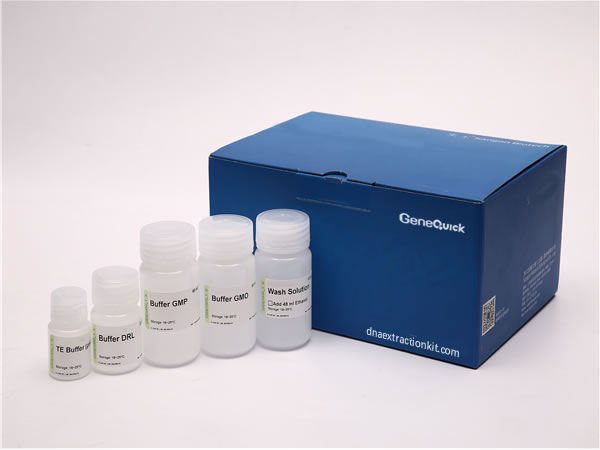What is Agricultural DNA Extraction Kit for FFPE Plant Samples?
An Agricultural DNA Extraction Kit for FFPE Plant Samples is a specialized scientific tool designed to isolate DNA from Formalin-Fixed Paraffin-Embedded (FFPE) plant materials. FFPE preservation is a common method used to store plant tissues for long-term research, such as in agricultural studies, by fixing them in formalin and embedding them in paraffin wax. This process helps maintain tissue structure but makes DNA extraction challenging due to cross-linking and degradation. This kit simplifies the extraction, providing high-quality DNA suitable for various molecular applications, enabling researchers to study plant genetics, disease resistance, or evolutionary traits from archived samples.
Using this kit ensures that even decades-old plant samples can yield usable DNA, which is crucial for tracking genetic changes over time or comparing historical plant varieties with modern ones. It's an essential resource for agronomists, botanists, and conservationists working with preserved plant collections, helping to unlock genetic information without damaging the original specimens. The kit is user-friendly, making advanced genetic analysis accessible in educational and professional settings.

Technical Specifications
| Model | Method | Sample | Application | Format | Workflow |
|---|---|---|---|---|---|
| AG-C-FFPE-20R | Column | FFPE Tissue | Agriculture | 20R | Manual |
| AG-C-FFPE-50R | Column | FFPE Tissue | Agriculture | 50R | Manual |
| AG-C-FFPE-100R | Column | FFPE Tissue | Agriculture | 100R | Manual |
| AG-C-FFPE-200R | Column | FFPE Tissue | Agriculture | 200R | Manual |
| AG-C-FFPE-8R | Column | FFPE Tissue | Agriculture | 8R | Semi-automated or Full Automation |
| AG-C-FFPE-24R | Column | FFPE Tissue | Agriculture | 24R | Semi-automated or Full Automation |
| AG-C-FFPE-48R | Column | FFPE Tissue | Agriculture | 48R | Semi-automated or Full Automation |
| AG-C-FFPE-72R | Column | FFPE Tissue | Agriculture | 72R | Semi-automated or Full Automation |
| AG-C-FFPE-96R | Column | FFPE Tissue | Agriculture | 96R | Semi-automated or Full Automation |
Working Principle
The principle behind this DNA extraction kit involves a multi-step process tailored for FFPE plant samples. First, it uses specialized reagents to deparaffinize the sample, removing the paraffin wax that encases the tissue. Then, it applies a digestion step to break down proteins and reverse the cross-links caused by formalin fixation, which helps release the DNA from the cellular matrix. This is followed by a purification phase where the DNA is separated from other cellular components using methods like silica-based binding or precipitation, ensuring that the extracted DNA is clean and intact.
This principle leverages biochemical reactions to overcome the challenges of FFPE preservation, such as DNA fragmentation and contamination. By optimizing these steps, the kit maximizes DNA yield and quality, making it possible to perform detailed genetic analyses even on samples that have been stored for many years. Understanding this principle helps users appreciate the science behind DNA extraction and apply it effectively in their research or studies.
Performance
The performance of this DNA extraction kit is optimized for FFPE plant samples, delivering reliable and consistent results. It efficiently breaks down the paraffin embedding and reverses the formalin-induced cross-links, which can often hinder DNA recovery. Tests show that it yields high-purity DNA with minimal contaminants, ensuring accurate downstream applications like PCR, sequencing, or genotyping. This high performance is critical for research that depends on precise genetic data, such as identifying plant pathogens or studying genetic diversity in crops.
Moreover, the kit is designed to handle various plant tissues, from leaves and stems to seeds, providing versatility across different agricultural contexts. Its robust performance reduces the risk of sample loss, which is common with degraded FFPE materials, and supports reproducible outcomes in laboratory experiments. This makes it a trusted choice for both novice learners and experienced scientists aiming to extract DNA from challenging preserved samples.
Application
This kit is widely used in agricultural research for extracting DNA from FFPE plant samples, enabling studies on plant genetics, disease diagnosis, and biodiversity conservation. For instance, researchers can analyze DNA from historical crop samples to understand how plants have adapted to environmental changes or to identify genetic markers for improved yield and resistance. It's also applied in educational settings, helping students learn about DNA extraction techniques using real-world preserved materials, which enhances hands-on learning in biology and agriculture courses.
Beyond academia, the kit supports practical applications in agribusiness, such as quality control in seed production or monitoring genetically modified organisms (GMOs). By providing access to genetic information from archived plant tissues, it facilitates long-term ecological studies and helps in preserving genetic resources for future generations. This broad applicability makes it an invaluable tool for advancing agricultural science and sustainability efforts.
Core Features and Advantages
The core features of this kit include its ability to efficiently handle FFPE plant samples, providing high DNA yield and purity with a straightforward protocol. It comes with all necessary reagents and components, such as buffers and purification columns, designed to minimize hands-on time and reduce the risk of errors. An advantage is its compatibility with various downstream applications, meaning the extracted DNA can be used directly in PCR, sequencing, or other molecular techniques without additional cleanup steps.
Additionally, the kit offers scalability, allowing users to process multiple samples simultaneously, which is ideal for high-throughput research projects. Its reliability and ease of use make it suitable for diverse settings, from university labs to agricultural institutes, ensuring consistent results even for those new to DNA extraction. These advantages underscore its role as a cost-effective and efficient solution for working with preserved plant materials, saving time and resources while delivering trustworthy genetic data.